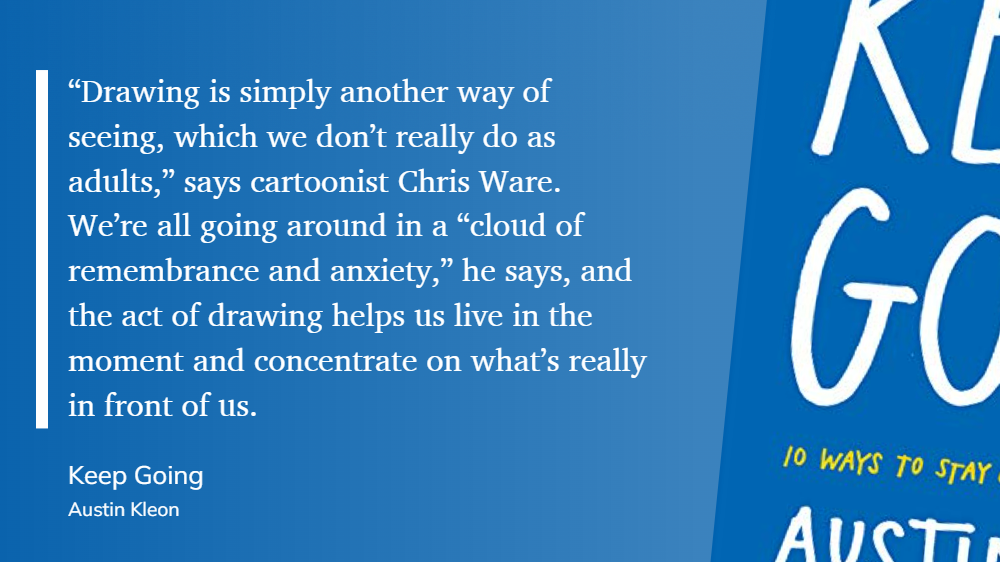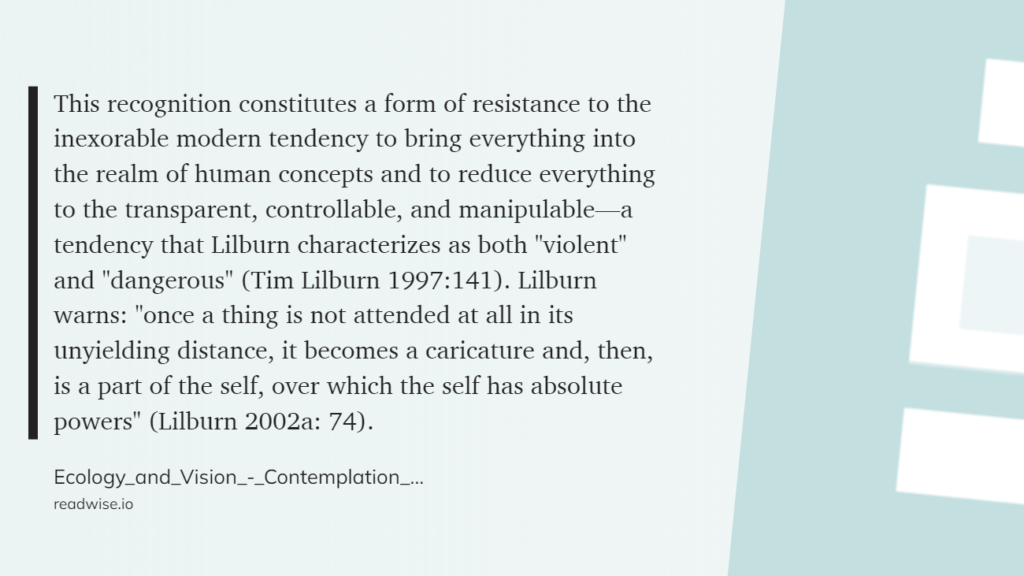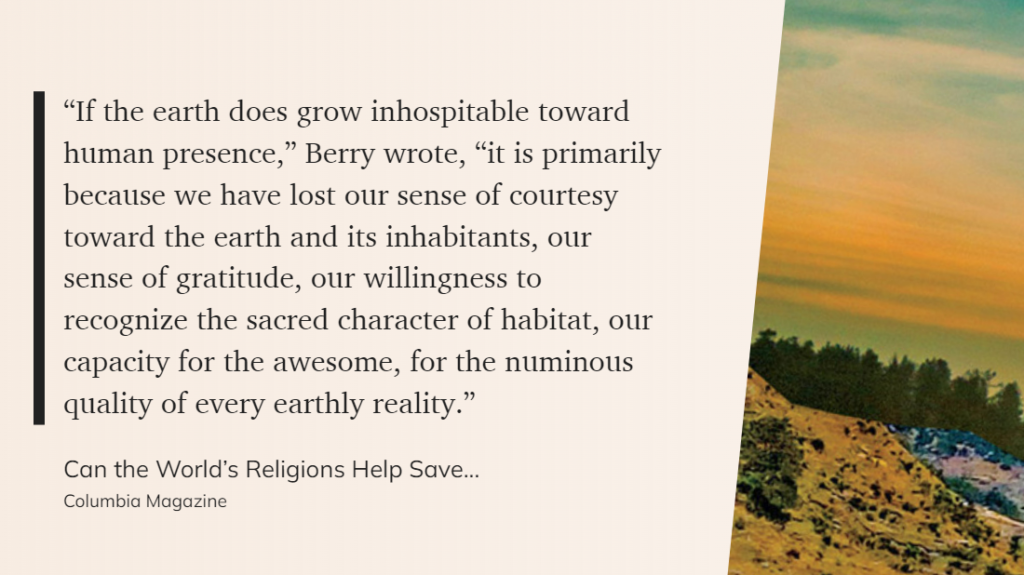This week’s explorations at the intersection of nature, art and wisdom.
Kills me with delight
We start, as I often do in life, with poet Mary Oliver. Here she speaks to her artistic process, which begins in nature… and ends up with her being lost “inside this soft world”. In my little formula: noticing+awe=wisdom=art.

What’s here, now
Oliver excels at “being there”. She’s engaged with nature, she’s present to it. That opens the door to wonder – that feeling of awe we miss when we’re wrapped up in our own thoughts and fears. Here’s cartoonist Chris Ware, quoted by Austin Kleon in his book Keep Going.

All about us
We do indeed spend much time wrapped up in ourselves. That is pretty dangerous when we share this planet with the rest of nature. The fascinating paper, Ecology and Vision, by Matthew T. Eggemele, quotes Tim Lillburn: “Once a thing is not attended at all in its unyielding distance, it becomes a caricature and, then, is a part of the self, over which the self has absolute powers.”

Lives of their own
Perhaps children’s illustrator Eric Carle (he of The Very Hungry Caterpillar) knew this. Here is a wonderful review by Jon Klassen of a book that pays tribute to Carle (gift link). See this in particular:
“There is research suggesting that in order to grab kids’ attention visible emotion should be maximized: faces contorted and stretched to drive home what’s going on inside. Carle didn’t buy into that. Animals, in his world, though colorful and bold on the page, remain mysterious and belong only to themselves. Carle loved them not for the roles they could act out or the more human emotions they could portray but for being themselves. His way of showing that love was to distill them down to their simplest components and imbue them with lives of their own that are none of our business.”
None of our business indeed. Isn’t that wonderful?
To the sublime
Here finally is Thomas Berry, who perhaps sums up everything in today’s Song Sparrow. To me, the artistic process of noticing nature, then finding awe and wonder in what you notice, does indeed bring you to a space that’s beyond your self – that could be described as sacred. Perhaps the world would be a better place if we did that more.

The article this extract is from, Can the World’s Religions Help Save Us from Ecological Peril?, is worth a read.